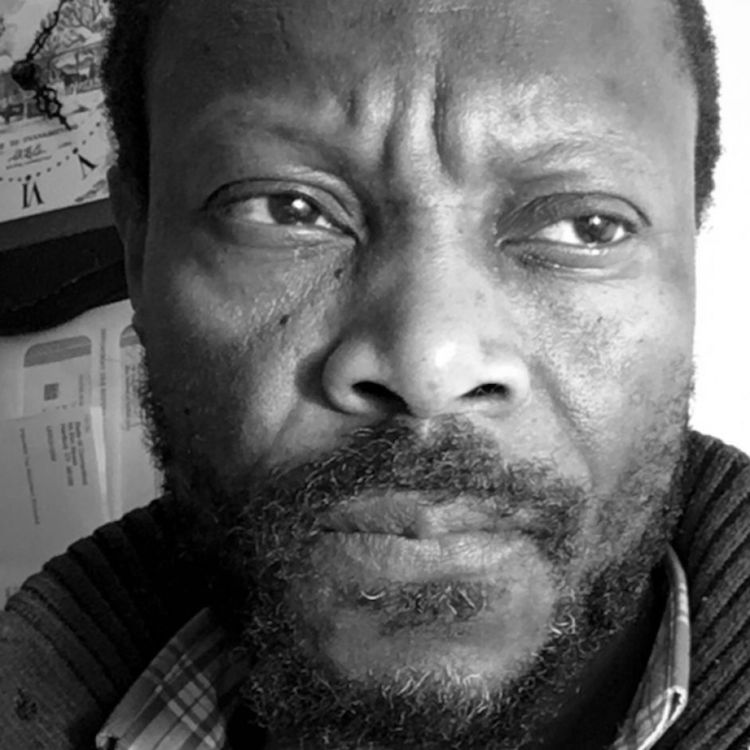ALBISOLA, Italy—An appropriate throwback amid a time of burgeoning authoritarianism, we take a look at Nigerian-born American conceptual artist Olu Oguibe‘s installation Game. Relating the cultural impact of European imperialist ambitions and colonialism’s inherent perception of racial inferiority to the world’s unprecedented rate of globalization, Oguibe uses a game of chess to insightfully examine globalization’s monopolization of power and its humanitarian toll.
In his artist statement, Oguibe recounts, while visiting Liguria in 2001, the death of a young activist named Carlo Giuliani at the hands of police, who brutally attacked antiglobalization demonstrators at the 27th G8 summit.
I also promised myself that if I should return to Liguria as an artist, I would create a work of art that deals with the elaborate and complex machine that brought Carlo and his fellow protesters to Genoa, a machine so complex and diabolical that very few of them understood it.
An elaborate installation piece, Game comprises a large ceramic mural, a table and chairs topped with a black and white ceramic chess board covered with 101 terracotta chess pieces. Among the pieces you won’t find kings or queens, but rather the masses of people; immigrants, refugees, travelers, citizens—all pawns in an “indeterminate, global game.”
In this extraordinary game of power, money, territories and desires, unwitting masses are shoved around, used and abused, disemboweled, evacuated, cleansed, discounted as mere collateral, as necessary and unavoidable casualties.
Cultures are uprooted and swept from ancestral land. Populations are displaced and offloaded in cities to roam unhinged and disoriented. Migrants battle ever-tightening borders, relentless and undeterred. And still the masses march, a multitude of pawns, like the crowds in Dante Alighieri’s Inferno, undone not by death, but by civilization and progress.
Behind the table hangs Oguibe’s ceramic mural. Drawing from the wall panel art of the Nkanu people of the Congo and Angola, it depicts eight male figures wearing colonial clothing and a helmet, a common African representation of colonial officers. Each man represents one of the industrialized nations in the Group of Eight—the establishment, intoxicated with power over trade, money, technology, information, ideas and people.
In the age of globalization, the received wisdom is that settler colonial presence being redundant it is replaced by remote control of information through global network systems in politics, the market, and the dispersal of humans and resources. However, very recent events in global politics provide strong evidence of the resurgence of settler colonialism. Standing guard over the rest of the world, the eight strong men of the new Empire oversee and manipulate the curious game of global usurpation and domination.
Like King Leopold and Ceasar, Oguibe argues these colonial District Officers’ illusory pursuit of world domination, occupying whatever land they choose, driving out disagreeable rulers and installing new regimes and armies in their place, is not a pursuit left to the past.
The helmet may be different, but the pattern has not changed. In other words, the motif and metaphor of the colonial District Officer are just as apt and palpable today as they were a century ago.
Oguibe said he produced the entire installation in two intense work sessions. The 101 figurines were finished in two days, while the mural was finished at a later time. Game premiered at the second Biennale of Ceramics in Contemporary Art (September 11 – 29, 2003)
In addition to realizing the wish to work again in clay, a medium that I have always relished and respected, and even more so to create a work that responds in some way to the experience and feelings generated during my first trip to Liguria.
Cfile’s Recommended Reading:
Oguibe has published several books and articles on art and postcolonial theory, including his collection of essays in The Culture Game which exposes the art world’s Westernized hierarchy of values disparaging non-Western artists.
Ranging from the impact of the West’s appetite for difference on global cultural relations and the existence of a digital Third World to the African redefinition of modernity, Oguibe’s uncompromising criticism provides a global vision of contemporary art and culture.
Olu Oguibe is a Professor at the Africana Studies Institute and in the Departments of Art and Art History, where he teaches studio practices and art theory. He graduated summa cum laude and valedictorian at the University of Nigeria in 1986, and received his PH.D. in the history of contemporary art from the University of London in 1992. Since then he has taught at the School of Oriental and African Studies, and Goldsmiths College, both of the University of London, as well as the University of Illinois at Chicago and the University of South Florida where he held the Stuart Golding Endowed Chair in African art. His last position was as a senior fellow of the Vera List Center for Art and Politics at the New School, New York.
Do you love or loathe this throwback from the worlds of contemporary ceramic art and contemporary ceramics? Let us know in the comments.






Great contribution to Cfile. Thank you for reminding me of this important reading!